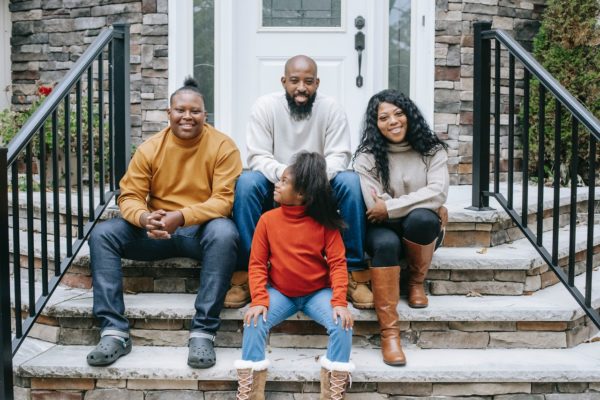It would seem like a good time to refinance your home in a time of historically low interest rates of about 3 percent. Yet Black homeowners aren’t. A Freddie Mac survey found that 50 percent of African-Americans could save $100 a month if they refinanced their mortgages.
Recent Federal Reserve study revealed that only 6 percent of refinancing mortgage applications came from Black applicants from March 2020 to October 2020. In comparison, 12 percent of White homeowners refinanced their mortgages in that time period. And even when Black homeowners apply for refinancing, they are rejected for refinancing 30 percent of the time, a Lending Tree report stated.

COVID and Unemployment Keep Black Homeowners from Refinancing Mortgages
Homeowners often refinance to reduce monthly mortgage payments and lock in a lower rate on their home loans.
Black homeowners have avoided refinancing mortgages for a variety of reasons. The COVID-19 pandemic has hit homeowners hard, and the Black unemployment rate is twice the national rate at almost 8 percent. As a result, African-American homeowners are having trouble making their current mortgage payments.
To start the refinancing process, homeowners are typically required to show proof of regular employment and have good credit. Black homeowners who have lost their jobs tend not to meet these criteria.
If a Black homeowner misses one payment because of financial hardship, they often have to make 12 on-time payments before they can begin the process of refinancing mortgages. The strict requirement may be discouraging to Black homeowners who want to refinance.
Refinancing Mortgage Costs Hurt Black Homeowners
Many fees come with refinancing; the total could go as high as $5,000. Homeowners looking to refinance must pay home appraisal costs, for a title search, and other fees. Also, the process involves paying closing costs again, which average between 2 percent and 5 percent of the loan amount. All these costs may deter African-Americans from going through the strenuous process of refinancing mortgages.
Distrust of Banks Keep Black Homeowners From Refinancing Mortgages
In addition to not having enough money to refinance, Black homeowners often have to contend with the racism of the housing industry. After the 200-2009 housing crisis, many Black homeowners lost their homes after defaulting on subprime loans. Because those loans were given to Black applicants with poor credit ratings when the housing bubble burst, many African-American homeowners couldn’t keep up payments and lost their homes.
As a result, African-American homeowners may be wary of trusting banks as they rebuild their credit and bought new homes, according to Consumer Reports. In addition to banks, there may be refinancing scams from predatory lenders that target Black homeowners, and the con artists may take their money and even home equity.
Even though there are reasons for Black homeowners to feel wary of banks, there are ways to negotiate with them to begin refinancing mortgages.
How to Refinance Your Mortgage
Here are some options to refinance mortgages.
- Reach out to HUD-approved counseling agencies. The Housing and Urban Development has low-cost or free counseling agencies to help Black homeowners learn more about the refinancing process.
- Have a clear refinancing goal. You may want to change your adjustable-rate loan to a fixed rate. Another option may be to shorten the loan time from 30 years to 15 years. Whatever the goal, stay focused, so you achieve it.
- Get your credit score. When you check your credit score, you can determine how good a rate you can get when you’re refinancing your mortgage. If you have a higher credit score, you can get lower loan rates.
- Get your mortgage paperwork ready. Have your pay stubs, current home loan papers, and property tax information readily available.
- Search for the right mortgage lender. Shop around for mortgage lenders that offer you the best rates. Compare and contrast at least three lenders.
- Choose a lender and lock in a rate. Once you choose a lender, lock in an interest rate for a 15-60 day period. The fees are usually 0.25-0.50 percent of the loan amount.
- Close on the refinancing mortgage loan. You pay off the closing loans to complete refinancing your mortgage. You can ask your lender for a “no closing cost” refinance. While you won’t have to pay closing costs, you may have to pay higher interest on the overall loan.
Black Americans have many obstacles to overcome to maintain homeownership. However, they can refinance their mortgages to save money and build their financial futures by taking action.




